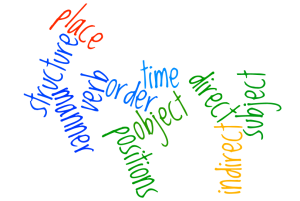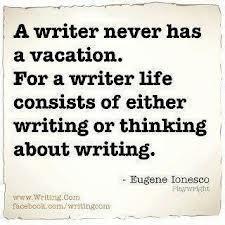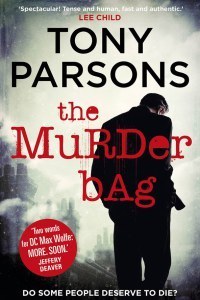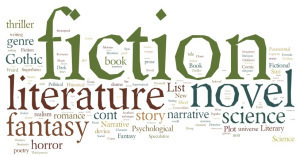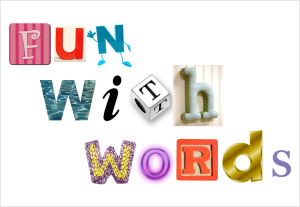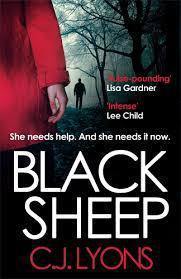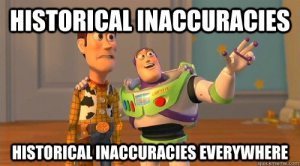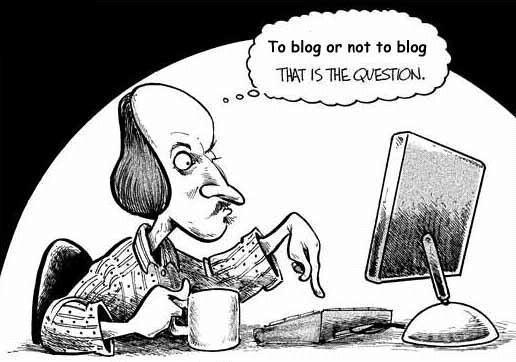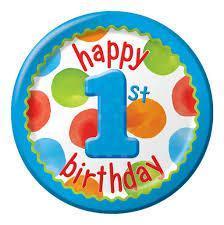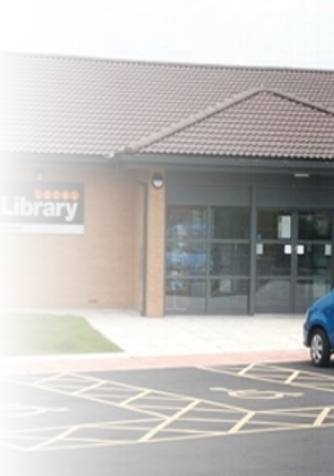Louise M.H. Miller's Blog, page 14
May 16, 2014
So…..sentence starters
So…here in the UK apparently we’re starting sentences, often pointlessly, with the word ‘so’.
So, why are we doing that? [Intentional] We’re using it as both a ‘filler’ between sentences very much like ‘erm’, as a filling word to allow us the few precious seconds which enable us to think what we’re going to say next. We’re also using it as a starting point to our next point. Academics and professors have just it for years as a sort of ‘here’s a big and important point/theory coming up so pay attention’, which some have found to be slightly patronising.
But more than this the increasing use of the word ‘so’ in particular is born simply out of habit. You get used to saying this word as a sentence starter and therefore keep using it (or in fact any word in particular). And you probably use it more than you think you do. I don’t think I use ‘so’ that much, I’m more of a user of ‘Yeah…’ to start my sentences – don’t ask me why, it’s a habit that I find extremely annoying and I’m trying to fix. (I think it must be when I continue the conversation on in my head when there’s been a lull in the conversation, and then add another point beginning, ‘Yeah…’. My habit seems to be more of a continuation of the whole conversation, rather than pointing out and drawing attention to a new topic/theory/or strand of the same conversation.)
But obviously we use the word ‘so’ enough for it to be picked up on and talked about. And the primary thing is, that it’s okay to use the word, even at the beginning of the sentence like we are doing, but really its the frequency with which we use ‘so…..’ where the “problem” arises. It’s not so much a “problem”, but more of an annoyance, especially with so many other words in our wonderfully dynamic language to use.
But this is really just in speech, you certainly wouldn’t write this in prose in fiction. But it is an interesting development in the ever-changing, ever adapting use of language, and something writers should be aware of when writing dialogue set in the present day – obviously it’ll be more difficult to find out if something of this kind was used in say, the Victorian age, or in the age of the Civil War, because it is in fluid speech and does not feature in written historical documents on which we rely on when we conduct research.
So……I’ll be keeping track today of if I say ‘so…’ and how many times if I do. And I’ll be listening out for others around me too.
Are you a culprit of this? Or do you use another word as a ‘filler’?
Filed under: Uncategorized Tagged: BBC, English language, language, language development, so, speech, word patterns, writing


May 13, 2014
Happy Retirement
So my colleague and job-share partner has retired. News of her retirement came fairly suddenly even though she’d been talking about it for, perhaps, the past six months. But still I think we all expected her to continue on for a bit longer.
So I’m blogging to wish her good luck and a happy retirement! She definitely deserves it after serving the local community of Upton as their librarian for (I think) 17 years!!! A tremendous achievement, and what’s more she’ll be sadly missed by myself, all that have had the pleasure of working alongside her and all the people of Upton with whom she has made many friends.
This blog post is about my colleague retirement, but also about the prospect of retiring generally. I may be a long way of from retirement myself but with Gail’s retirement I’ve started thinking about it.
It may seem like an easy decision. Gail, for instance has worked every (working) day since 17 years old, only taking the basic maternity leave entitlement before heading back into work again, so you’d think it’d be an easy decision for her, and countless others like her. But I don’t think it is that easy.
You may enjoy not being at work, but you probably will miss the routine of work and/or the people you work with. Stopping work completely must be an extremely hard adjustment to get used to.
Another point comes to light too….Do writers ever truly retire? They may not write for publication any more, but can they ever silence the need to write?
Is a writer always a writer?
Filed under: Uncategorized Tagged: quote, retirement, Writer, writing, writing quote


May 9, 2014
Changing Tack
Tony Parsons writes highly successful novels about family, love and loss, but as a change of tack has decided to give crime fiction a go. Read his interview with GQ Magazine here.
How was the process of writing the novel as a venture into new territory?
It was a gamble. But you have to take chances sometimes.
[Q&A taken from the same GQ interview - above link]
Should we all hurl ourselves out of comfort zone and try something different – this isn’t just limited to writing. I have no doubt that, while it may have been enjoyable and a thrill for Tony Parsons to try his hand at crime fiction, it wouldn’t have been a walk in the park. But is that an excuse to prevent us?
Even though it’s not limited to writing, let’s stick to it; should we all venture into new territory?
We all could give it a go. Even if it’s not something that we would publish, maybe it’ll just be a good tool for writers. I’ve often spoken about reading different genres from what you normally do – so why not write the genres you might not normally do? I would probably give it a go, purely as a writing exercise; as a way to push my creativity – and skills – beyond what I normally would.
For me, a writer (and reader) of historical fiction, I’m also a fan of fantasy. And it’s this genre I might well try. In historical fiction you create fiction out of reality. Every detail (mostly) is there for you in historical documents – what the people wore, their religions, politics, speech, what the places were like etc etc. But with fantasy the world is one you fully create.
If I were to give it a go, it will just be as an exercise (although you never know). I’d plan the novel as if I were to write it, creating the world, the characters, the plots and everything else in between.
The main advantages you could get is to broaden your creative mind; to think out of the box, and try other ways of creating stories. And secondly, you never know. You may not get a full novel out of it, but you may grab a single plot-line or fall in love with a character you’ve created that you probably may never have created in your ‘usual’ novel preparations.
Of course the main disadvantage is, or at least for me, is time. Do I have the time to embark upon something entirely new without the guarantee that something will come out of it in the end. Well, I guess that’s just writing generally. With everything we embark upon whether it’s in our chosen genre or not its always a bit of a gamble whether the story and her characters will work.
But whatever the outcome of the gamble, it could just be a little bit of fun. And while writing is hard work, it still should be fun. If we didn’t think writing was fun we wouldn’t write right? So why not get back to the basics of writing and have a little bit of creative fun.
Filed under: Uncategorized Tagged: creative, creativity, fun with words, genres, GQ, Tony Parsons, writing


May 6, 2014
To E-Read or not to E-Read; Take 2
Back in February 2012 I posted a blog entitled to E-read or not to E-read? Over two years later I’m still thinking about it and people are still debating it.
My conclusion back in 2012 was that I’ll probably use my e-reader (kindle) about 50% of the time, and still read actual books. And I’ve found that I’m still sticking to that. It’s not a conscious effort to stick to this but probably more to the fact that I work in a library and so are surrounded by books everyday.
And I still buy books and read them, just the same as I do with e-books.
And the benefits with an e-book are still much the same as I thought they would be:
1. I can carry around numerous books all at once.
2. I don’t have to keep buying more bookshelves – I’m running out of space as it is.
3. It’s easier to read on the train – especially when I’m balancing my work bag and my push-bike.
4. It’s easier to read in bed.
But still they can be pretty divisive. I guess I take the easy route and sit on the fence. I use e-readers and still read books. And I see the positive and negatives for them both.
Some people love them. Some people hate them. I guess could live without mine – but I don’t want too….
Filed under: Uncategorized Tagged: books, e-books, e-readers, Kindle, reading trends


April 30, 2014
Review; Black Sheep – C. J. Lyons
Black Sheep
by
C. J. Lyons
“It’s the one mystery Supervisory Special Agent Caitlyn Tierney has never solved: her father’s suicide after he had to arrest his best friend for murder. It drove Caitlyn to become one of the FBI’s best – and most unorthodox – agents.
‘So when the man she holds responsible for her father’s death begs her assistance in finding his missing daughter, Caitlyn is horrified. But, as whispers of half-understood conversations from her childhood begin to come back to her, the agent inside Caitlyn must admit that something doesn’t feel right.’
‘Her search brings her back to her North Carolina hometown, now vibrant with new money, old lies, and an unknown enemy who will do anything to keep Caitlyn from learning the truth…”
- This is not something that I would normally pick up to read. But I think its important to do that from time to time – to read outside of your ‘usual’ genre choice. a). it gives you a ‘break’ from reading the same genre, b). as a writer it may open up ideas for future work, c). as a writer it can open new ways of writing – new ways to represent your words.
- So what was it like? It was a fairly interesting, and a good-paced page turner. It has enough intensity thrown in to keep you reading until the end. It has a bit of everything and Caitlyn is a truly likeable and ‘real’ character and who steals the show in almost every scene – apart from the ones with Smokey! A good read for those who like their thrillers with just the right amount of suspense and intrigue. I probably won’t be picking up another thriller/crime genre book for a while but that’s just preference and no reflection on C. J Lyons, who is a very gifted story-teller. I did become engrossed by the story and by the characters that she created, and was surprised at the ending; so on the whole I’d have to admit that I did enjoy it. Personally I’d give it 3/5 but I’m fairly new to this genre and haven’t read much to compare it by. But I think for someone who regularly reads the genre I feel that there is enough intrigue and pace to award it 4/5. So for argument’s sake I give Black Sheep 3.5/5.
Filed under: Uncategorized Tagged: book genres, C J Lyons, reading, review, thriller, writing


April 25, 2014
How to Keep Motivated While Editing?
I’m almost at the end at another edit through my second novel – hopefully at the end of today I’ll be tweeting a massive hurray! It’s not that I don’t like what I’ve written or that I’ve now read it through for seemingly the umpteenth time (I’m actually getting to really know the ins and outs of the characters as a reader as well as the one who created them).
But its been a struggle to keep motivated. The first edit through was a massive task, I had sections that weren’t even finished, and I did a lot of initial editing, plus lots of highlighting, as well as lots of re-arranging into a more sensible order. Then I read it through again – making small changes when the leapt out at me. Now it’s my third – and hopefully penultimate – edit. And its taken me ages.
And I think the main thing that I’ve learnt in order to keep bringing myself to the page to keep on editing – and quieting my mind to the other great possible stories and future novel ideas that are rocking around in my brain – is to break it down into chunks.
I’m at that editing stage where I think I’m pretty happy with what I’ve got – now I’m reading it through and editing basically line by line and paragraph by paragraph to make sure that what I’ve written down is the best that it can be. And that’s a pretty big task. But it’s also a task that needs a huge amount of concentration. So I never really do more than a couple of hours at a time – because after a while my eyes start to skip of the page quicker and my brain starts turning to mush the harder and longer I concentrate.
What I’ve learnt - break it down. Do a couple of hours and then stop. I’m not going to help myself by trying to do more in one session.
What I’ve learnt - not to feel guilty. Yeah a huge part of me feels guilty that I’m not working on the editing process for hours on end – part of me feels I should. But….
….What I’ve learnt - that I shouldn’t rush through it. Editing isn’t a stage that many writer’s like to do, but it has to be done but still I have to pull myself away before I start to get ahead of myself. I don’t want to miss anything in the rush just to get it finished(!!)
What I’ve learnt - that I can work on something else at the same time. The beauty of doing only a couple of hours editing at a time allows more time to undertake other projects, whether its to spend some serious time on blogging, on networking, on brain-storming new ideas, on writing new things, on research, or simply on reading that escalating pile of books that you just haven’t found the time to read yet.
Editing is no one’s friend really. It just helps to find what works best for you so your work isn’t languishing at the bottom of a drawer or lost in a computer folder on your desktop. For me its taking little baby steps at a time otherwise I think I’ll get disillusioned with it. Editing for me has been a up-hill struggle, but I’ll get it done – I know I will – so how I get it done is alright with me as long as it gets done.
Filed under: Uncategorized Tagged: disillusionment, editing, editing routines, motivation, writing a novel, writing advice, writing routines


April 23, 2014
Hello writing, my old friend
To paraphrase Simon and Garfunkel; Hello writing, my old friend.
The Easter break has been and gone and after a couple of days off – doing nothing much in particular – I’m back feeling refreshed and creatively energised.
So I’m cracking my knuckles, rolling up my sleeves and getting back to work.
The few days off has done me a world of good, it has relaxed me and now I’m ready to get back into it.
While it may be important to write every day – or at least do writing work (right now I’m editing) – it’s also important to take time off. To relax. To step back and revitalise creativity.
Do you take time off?
Filed under: Uncategorized Tagged: creativity, Easter, taking time off, writing tips


April 10, 2014
Access to History
A lot of our access to history is through films. Gladiator. The Deer Hunter. Elizabeth. Saving Private Ryan. All good films. But is this particular access to history enough and is it okay?
From minor to major historical inaccuracies, it is important to remember that some scenes are pure conjecture or simply changed altogether, and from artistic license I can appreciate this.
But does Hollywood and others have a responsibility to teach us truth? It doesn’t have to be the whole truth and nothing but the truth, some things can be tweaked. But it shouldn’t contain major inaccuracies especially if the film or tv show claims to be based on a true story.
In the film Elizabeth it depicts a scene where Queen Elizabeth I is shown to be less than England’s Virgin Queen, by showing a sexual romantic relationship with Dudley. Other films invent characters altogether.
Historians are governed, try as they might not to be, by their personal thoughts and about the times they write in. History is generally, and stereotypically written by the victor. And there is a whole branch of the study of history called historiography – of why people wrote in the certain ways that they did – what influenced them. The same can be said of directors and screenwriters.
Directors and screenwriters are also governed by the same impulses as newspapermen: to sell. And if invention gets bums on seats in the cinemas to watch their film then they’ll do it right? The issue I have comes from the level of invention and the amount of the story altered. A primary example of this – which drives most, if not all, historians round-the-bend, is the mythological story of the romantic relationship between Captain John Smith and Pocahontas. According to a letter by Smith written nine years after to Queen Anne of England, Pocahontas did save his life in the new world of America in 1607. But no evidence exists that they went onto have a romantic relationship – nor a relationship of any kind; and this is not even including the fact that Pocahontas would have only been ten years old at the time of John Smith’s landing at Jamestown in 1607. But time and again directors and movies makers overlook this crucial inaccuracy and make a movie out of it, claiming it to be, like Terrence Malick’s The New World in 2005 (starring a fairly laughable Colin Farrell as John Smith) based on the true story.
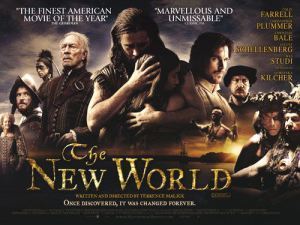
Audiences get annoyed and can feel cheated when movie makers change key parts when making a movie based on a book. Those in the movie industry have an artistic licence that shouldn’t be taken too far. Can you imagine if they’d gone against the ending of the final Harry Potter novel and Voldemort had been triumphant instead of Harry? No. So why do historical films, which importantly claim to be true stories, appear at times to be exempt from this? I don’t honestly mind if attention to detail items are changed or overlooked – the breed of the dog for instance at the beginning of Ridley Scott’s Gladiator starring Russell Crowe, didn’t exist yet. But it isn’t a super integral part. But adding characters, changing truths, and relying on mythology are not ok.

Many people in the world don’t read history. Many people don’t study it at school, or doze through their lessons, thinking that the study of the past is not important. But some of them may watch historical films, even if it is just to see for example the rippling oiled bodies of the actors in 300.
And that may be their only access to history. And honestly I think that these people are in the majority. So should movie makers have some sense of responsibility to tell the story as it really was? They needn’t be worried about changing things to make the film more exciting. How does the popular saying go? Truth sometimes is stranger than fiction.
Filed under: Uncategorized Tagged: duty to history, historical films, historiography, history, Hollywood, Pocahontas, Terrence Malick


April 8, 2014
How to keep on blogging
If you’ve got a blogging routine, say twice a week like me, then there must be times when staring at the blank screen you realise that you’ve got nothing really to say – or certainly not something that you’ve already said before.
So how do you leap over this hurdle by finding something interesting enough for people to read?
The simple answer is…I have no idea.
You can have your list of what you normally would blog about and other ideas tumbling about in your mind, but what happens on those days where the words just don’t feel right.
Much has been said about writer’s block – but what about blogger’s block?
I guess the way to tackle it is just to get on and blog. Strive through the blockage.
One. Update your fellow bloggers. Something you’ve done. Something you’ve achieved.
Two. Write a book review (not helpful for those who have a book review blog). It doesn’t have to be long. A couple of sentences will perhaps do. Perhaps write about the book your reading now.
Three. Is there anything interesting going on in the world today?
Four. Any forthcoming events or news items.
Five. Any interesting historical events that can be tied to the month or precise date?
Six. Why not say a bit more about yourself? Keep it as personal or not as you like.
Seven. Talk about the latest film you’ve seen or your favourite TV show
Eight. Write a list of what you want to achieve in the next few months/years. i.e. 30 things to do before your 30.
Nine. Have a good old moan about something. What’s really getting your goat at the moment?
Ten. Go out and do something interesting. Then tell you blogger friends about it.
Eleven. Start a blogging theme. A to Z of blogging. Start at A and work your way through the alphabet blogging about something which begins with the letter A….B…..C….and so on.
Twelve. Write and blog your own list just like I have today! Sneaky!
But this doesn’t exactly tackle the problem head-on. I guess if you can look through this list, or any others, or even write your own and still can’t find something to say then perhaps don’t. Leave it for a bit and then come back to the blogging world when you’ve got a fresher mind.
Just don’t stay away too long though!!
Filed under: Uncategorized Tagged: blog ideas, blog tips, blogger, blogging, blogging themes, routine, wordpress, writer's block


April 4, 2014
We’ve been around for a year
Last Tuesday, April 1st, my community library – well the community library where I work – celebrated its first birthday.
Back in November 2012 the local council authority decided to close some of its libraries as a cost-cutting measure after they were given a huge amount that they had to save. Of course, the council didn’t say that this was the reason – they never do – but rather that it was part and parcel of a restructuring and modernisation of the library service. Pull the other one. But it’s not about that any more.
Upton Library was one of those ear-marked for closure and after about a year of uncertainty the countdown to closure began.
Then in March 2013 a local community, not-for-profit organisation called UNEF (Upton and North Elmsall Forum) received the keys to the building to take over the running of Upton Library transforming it into a community library hub running as a library as well as a community and learning centre and even had a small cafe installed serving hot and cold food and drinks.
Myself and another librarian were brought in to oversee the running of the community library on April 1st 2013. After several ups and downs and the huge task of getting the library back up and running, including putting over 7000 books onto the new catalogue system manually, the library made it to its 1st birthday.
The achievement is all the more remarkable given the trials and tribulations we’re been through getting it running and keeping it running.
But the hard work has paid off. The library is running excellently and we’re providing more services for the small community, which has been neglected for years by the local council authority. The feedback that we have received has been overwhelming enthusiastic and highly praiseworthy of the fact that we’ve kept the library open (a massive life-line for some people) and that we’re doing it so well.
Of course, our success could never have taken place without the grit and determination of the UNEF directors who fought to take it over, as well as the volunteers, some of whom have been with us from the very beginning. The dedication that these volunteers have brought to the project is outstanding. And I give them my thanks and appreciation for their monumental efforts.
<< I would have posted sooner, but for some reason I’ve found myself to be super-busy this week and this has been the earliest opportunity that I’ve had to blog about Upton Community Library’s achievement. >>
Filed under: Uncategorized Tagged: community, community libraries, community projects, Library, library closures, local council, local library, UNEF, upton, wakefield


Louise M.H. Miller's Blog
- Louise M.H. Miller's profile
- 18 followers



